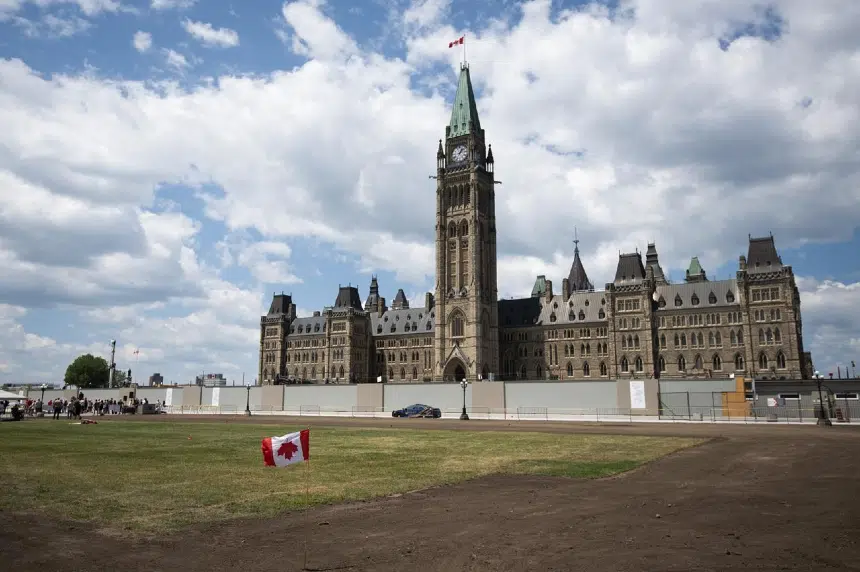OTTAWA — The country’s second pandemic-shaded Canada Day is underway, with events either scaled back once again due to COVID-19 or cancelled as Canadians reckon with the horrific legacy of residential schools on Indigenous Peoples.
Groups, organizations and municipalities have decided against holding special events today after hundreds of unmarked graves were found at residential school sites in British Columbia and Saskatchewan.
Cowessess First Nation last week said that ground-penetrating radar detected 751 unmarked graves at the former Marieval Indian Residential School, not long after the discovery of what are believed to be the remains of 215 children in Kamloops, B.C.
And then on Wednesday, the Lower Kootenay Band said a search using ground-penetrating radar had found 182 human remains in unmarked graves at a site close to a former residential school in Cranbrook, B.C.
Canadian Heritage still plans to go ahead with virtual Canada Day events like last year, with an online music show featuring English, French and Indigenous artists, but the flag atop the Peace Tower will be at half-mast to honour the Indigenous children who died in residential schools.
In his Canada Day message, Prime Minister Justin Trudeau reflected on how the pandemic has changed daily lives, taught hard lessons, and kept many apart as part of the sacrifices needed to keep communities and neighbours safe and healthy.
But he also noted the horrific findings at the sites of former residential schools that Trudeau said have “rightfully pressed us to reflect on our country’s historical failures” and injustices that still exist for many.
“While we can’t change the past, we must be resolute in confronting these truths in order to chart a new and better path forward. Together, we have a long way to go to make things right with Indigenous peoples,” said Trudeau, who plans to spend the day with his family.
“But if we all pledge to do the work – and if we lead with those core values of hard work, kindness, resilience, and respect – we can achieve reconciliation and build a better Canada for everyone.”
Assembly of First Nations National Chief Perry Bellegarde used his Canada Day message to call for transformational change in the lives of Indigenous Peoples, including justice for residential school survivors, clean drinking water and healthy homes in Indigenous communities, and student success.
He urged everyone to reflect on the country’s dark past, adding politicians have a role to play in doing better as a country.
“There is an opportunity for all levels of government to act on First Nations priorities,” he said in the video. “There is a strong foundation for continued progress, but there remains much more work ahead of all of us. We cannot lose the momentum.”
New polling suggests a recent rethinking of this country’s history, with the dominant narrative of European settlers discovering Canada making way for Indigenous Peoples being the First Peoples of the land.
Polling from firm Leger and the Association for Canadian Studies found that one in every two respondents said Indigenous Peoples “discovered Canada,” while one-in-three said it was Jacques Cartier.
Association president Jack Jedwab said more people are beginning to understand the presence of Indigenous Peoples prior to what we have conventionally thought of as the discovery and settlement of Canada.
The same poll found about six in 10 respondents held a positive view of Sir John A. Macdonald, Canada’s first prime minister, whose likeness has been removed from various public displays over his role in setting up the residential school system.
“People are aware of what’s going on, clearly, about the horrible tragedy about residential schools,” Jedwab said of the results. “But I don’t think that as many people as we think are making the connection to Sir John A. Macdonald.”
The survey of 1,542 Canadians in an online panel took place between June 18 and 20, but can’t be assigned a margin of error because online panels aren’t considered truly random samples.
This report by The Canadian Press was first published July 1, 2021.
The Canadian Press







